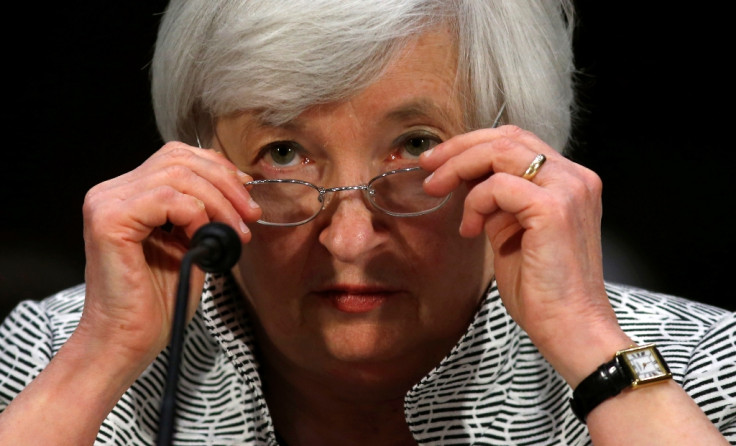US Federal Reserve to remain 'patient' over interest rates
US central bank interest rate decision and FOMC statement are due out at 1900 GMT.

The US Federal Reserve's first policy meeting of the year concludes on 28 January and the central bank will likely restate its "patient" approach to raising interest rates and express faith that the world's leading economy will continue improving.
Fed chief Janet Yellen faces growing skepticism that the central bank can tighten monetary policy by mid-year, with a strengthening US dollar and falling oil prices adding to fears that inflation readings remain too low for the Fed to begin raising interest rates later this year.
But Fed officials have argued that the oil rout is a transitory factor that benefits American consumers in the short run.
And with US unemployment falling and economic growth on track, Fed officials have indicated they will proceed with an initial rate hike in the middle or latter half of 2015, even if other closely watched measures such as wages remain weak.
The Fed's interest rate decision and its monetary policy statement are due out at 1900 GMT.
Cornerstone Macro economist Robert Perli told Reuters he expects, at most, minor changes to the Fed's December 2014 statement.
Analysts' take
Perli added: "The Fed is operating under the base case of a June liftoff, and June is still several months away. [It] can afford to buy itself some more time, and that's exactly what we expect it to do."
We expect the Fed to indicate that it remains on track to start raising rates around mid-year...
Nordea said in a note to clients: "We expect the Fed to indicate that it remains on track to start raising rates around mid-year. Thus, we expect no major changes to the FOMC statement at today's meeting. Both falling oil prices and the ECB's decision to undertake QE strengthen rather than weaken the case for lift-off in Fed rates later this year, in our view"
Standard Chartered said in a note: "We think the Fed's patience may continue for a few more months, and that the Fed is unlikely to raise rates before at least September. The key is core PCE inflation(whether it rises above 1.5%) and to a lesser degree, wage growth.
"Recent data on both has been subdued, suggesting that risks to our forecast are for a later rather than earlier policy lift-off.
We continue to think the tightening cycle will be very gradual...
"We continue to think the tightening cycle will be very gradual, with the fed funds target rate likely to level off at a relatively shallow level of 2.0% (reached by Q1-2017), versus the Fed's forecast of a terminal rate of 3.75%."
Capital Economics said in a 23 January note: "While the strength of real economic growth and employment suggest that the Fed should begin to raise interest rates very soon, the mixed news on wages, the lack of any pick-up in core inflation and recent market volatility seem to have persuaded officials that they should delay lift-off until the middle of this year."
© Copyright IBTimes 2025. All rights reserved.






















